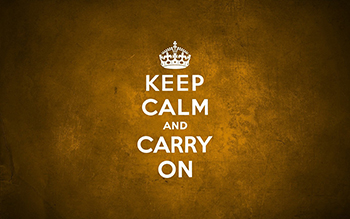 Some stress is caused by external factors, some stress has internal causes, and most stress is a combination of the two. It is always helpful to identify the external sources of stress and change these if you can. At the same time, the amount of stress we experience is often made more difficult by our own internal reactions. And some stress may be caused by what we think, how we feel, and what we do.
Some stress is caused by external factors, some stress has internal causes, and most stress is a combination of the two. It is always helpful to identify the external sources of stress and change these if you can. At the same time, the amount of stress we experience is often made more difficult by our own internal reactions. And some stress may be caused by what we think, how we feel, and what we do.
In this third blog of a three-part series, you can learn how the Enneagram types formed in the Body Center of Intelligence – Eights, Nines and Ones – act when stressed, what stresses individuals of these types, and how people of each type can change their self-talk to reduce their stress.
EIGHTS under stress become more excessive in a variety of ways – overeating, extreme exercise, insufficient sleep, workaholism, constant shopping; and they may also take big action even faster than usual; be aggressive, withdrawn, or both; become insistent, controlling, and punitive; and/or become sick and deeply discouraged.
Stressors
-Feeling out-of-control
-Feeling blind-sided or sabotaged
-Feeling betrayed or hurt by someone they’ve trusted
-Unintentionally wounding someone they care about
-Having their territory or respect-based authority challenged
-Allowing themselves to be vulnerable or to need someone, then being abused
-Perceiving someone as cruel, unjust, or unfair
To reduce stress…change your self-talk
Notice when you say something negative or non-productive to yourself; this worsens your stress. Take that statement, then change the statement to its opposite, and say the new statement to yourself instead. Use this process each time you engage in negative or non-productive self-talk.
Change this: If I’m happy, I open myself to danger to this: I deserve peace and contentment; I can relax.
Change this: Who is in charge here; do I need to take control? to this: Sit back, breathe, and let someone else drive the car.
Change this: Is this person honest and trustworthy, or putting on a front? to this: Let me give this person my time and openness.
NINES under stress become quiet, highly talkative or both; experience insomnia or sleep far more than usual; become more defused and forgetful than normal; can become irritable, stubborn, or refuse to do things; and engage in secondary pastimes or activities as a way to soothe themselves, relax, or reduce the pressure.
Stressors
-Feeling angry
-Someone being angry with or threatening them
-Feeling pressured to do something they don’t want to do
-Falling behind in their responsibilities and tasks
-Someone taking advantage of them
-Not feeling their voice has been heard or their opinions honored
-When a moderate amount of stress becomes prolonged, not being able to find ways to return to peace and relaxation
To reduce stress…change your self-talk
Notice when you say something negative or non-productive to yourself; this worsens your stress. Take that statement, then change the statement to its opposite, and say the new statement to yourself instead. Use this process each time you engage in negative or non-productive self-talk.
Change this: It doesn’t matter, I don’t matter, and it’s not that important anyway to this: I matter.
Change this: I’ll listen to what they all have to say first and then take my pick to this: What do I really think and want?
Change this: If I agree with others, they’ll like me and I won’t create conflict to this: When I say yes but don’t really agree, I don’t respect myself and that’s more important than avoiding conflict.
ONES under stress become easily irritated, short-tempered with others, with tense muscles and shortened breath, and eventually they can blow a fuse, becoming deeply angry and saying things they wish they had not said.
Stressors
-Making mistakes (especially by them, but also by others)
-Having too much to do in too short a time period
-Feeling criticized by others or becoming highly self-critical
-Others not being on time for appointments or being insufficiently prepared
-Structure or processes for doing things not sufficiently clear to them
-Feeling under-prepared
-Situations feeling out of their control
To reduce stress…change your self-talk
Notice when you say something negative or non-productive to yourself; this worsens your stress. Take that statement, then change the statement to its opposite, and say the new statement to yourself instead. Use this process each time you engage in negative or non-productive self-talk.
Change this: Why aren’t they more prepared and organized? to this: I’m allowed to make mistakes and so are others.
Change this: What is going wrong here? What do I need to do to improve things? to this: Let me find all the things that are going well.
Change this: Did I handle this situation correctly; did I do it with the highest integrity? to this: I handled the situation the best I could at that moment, and that’s being human.
Ginger Lapid-Bogda PhD, the author of six best-selling Enneagram-business books, is a speaker, consultant, trainer, and coach. She provides certification programs for professionals around the world who want to bring the Enneagram into organizations with high-impact business applications, and is past-president of the International Enneagram Association. Visit her website: TheEnneagramInBusiness.com. ginger@theenneagraminbusiness.com

Comments are closed.